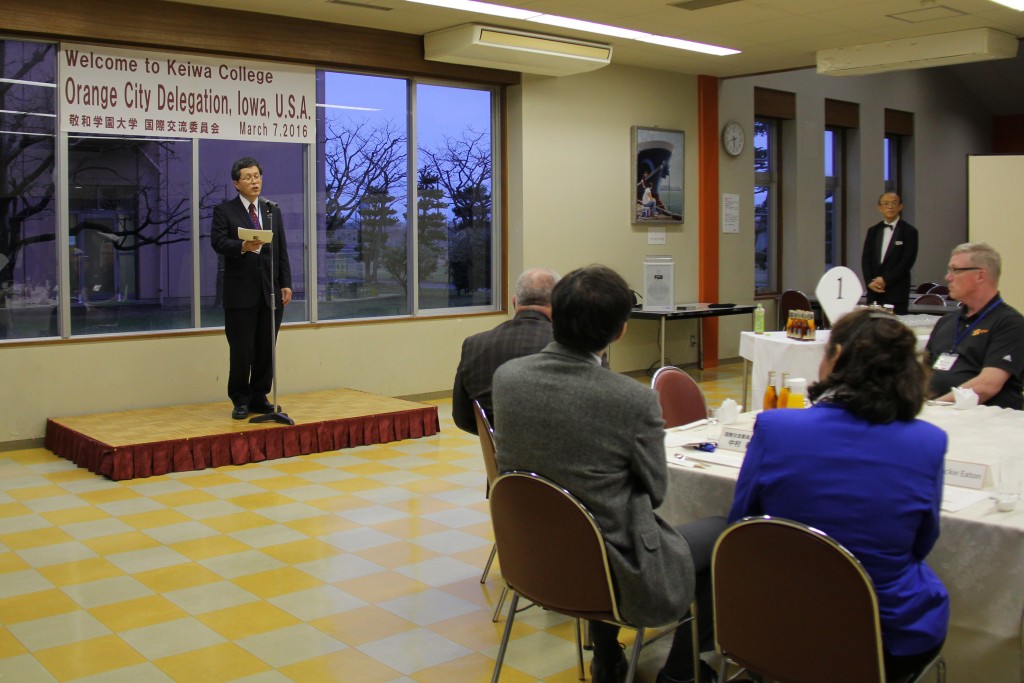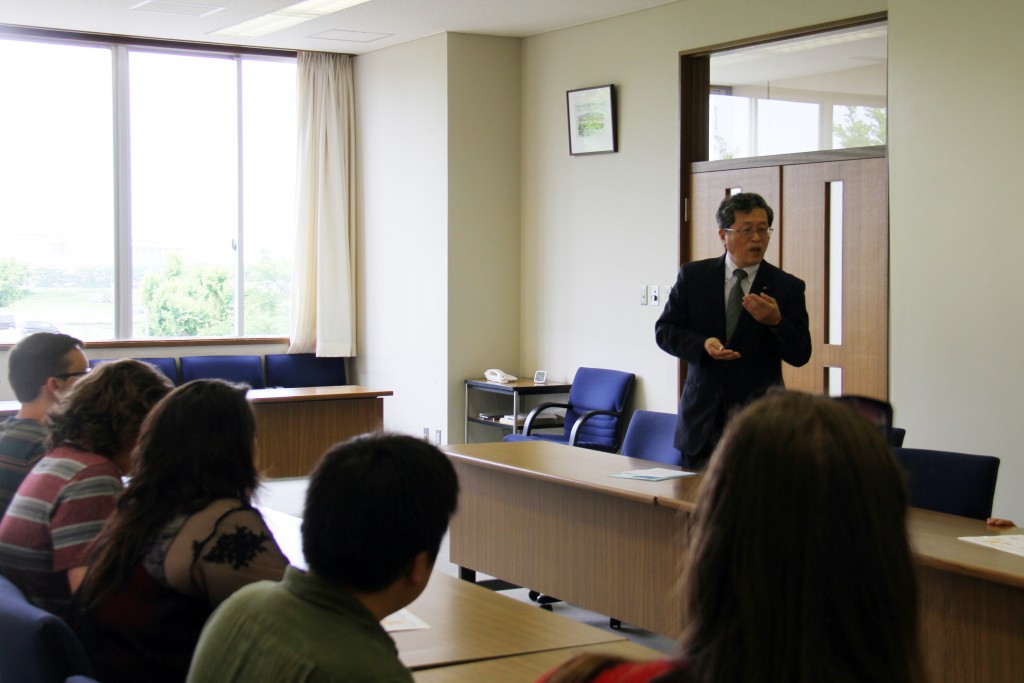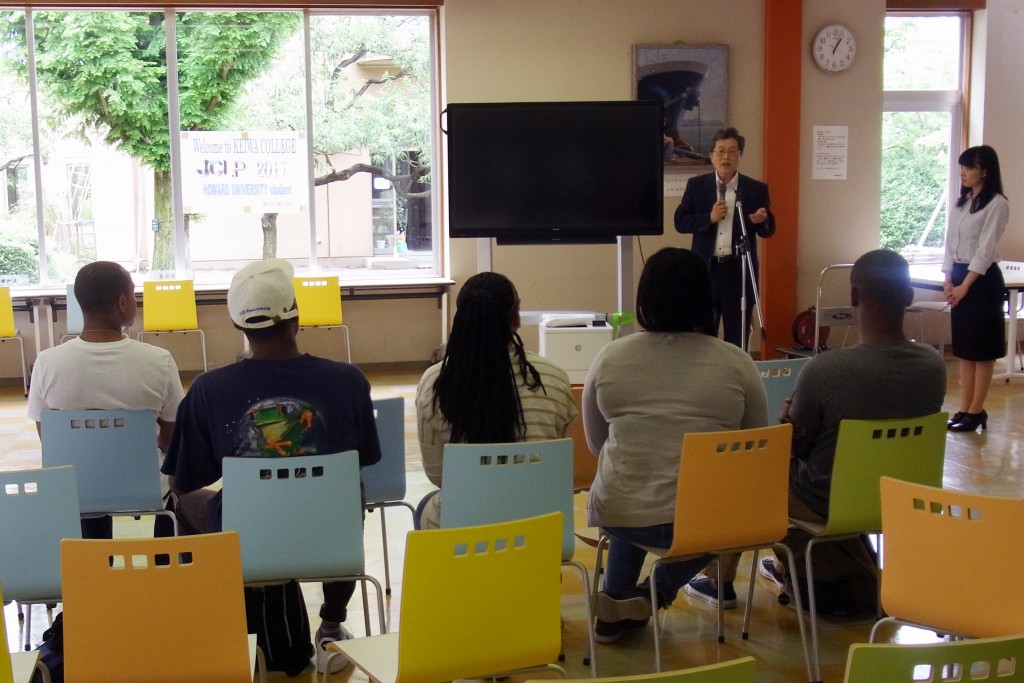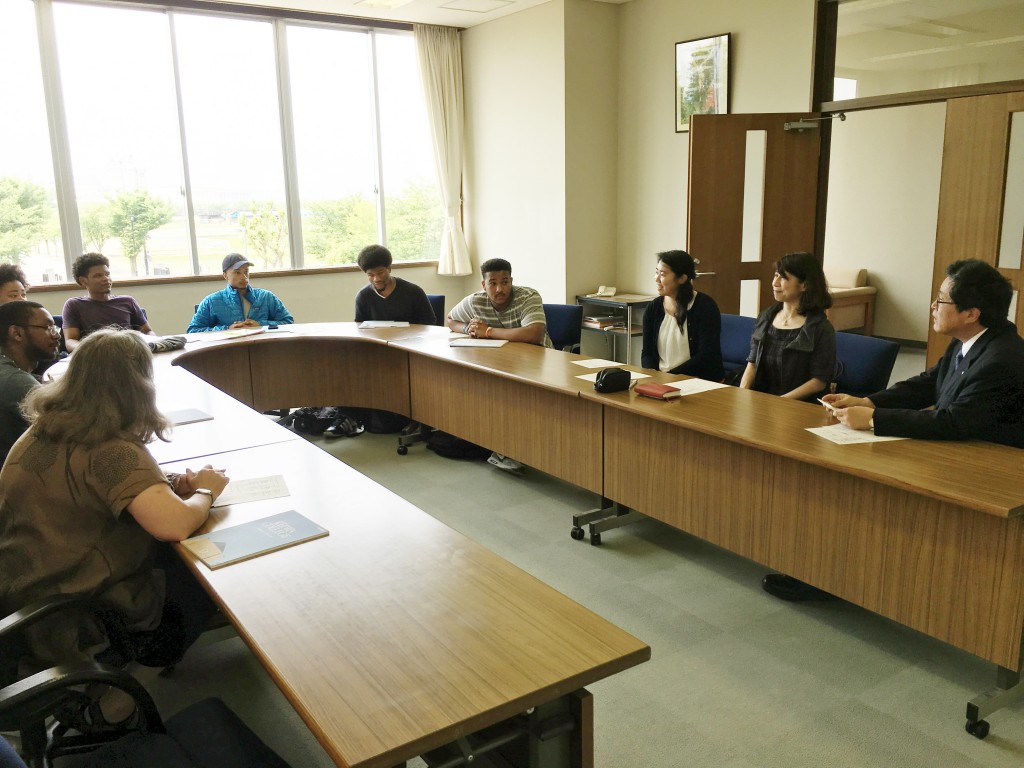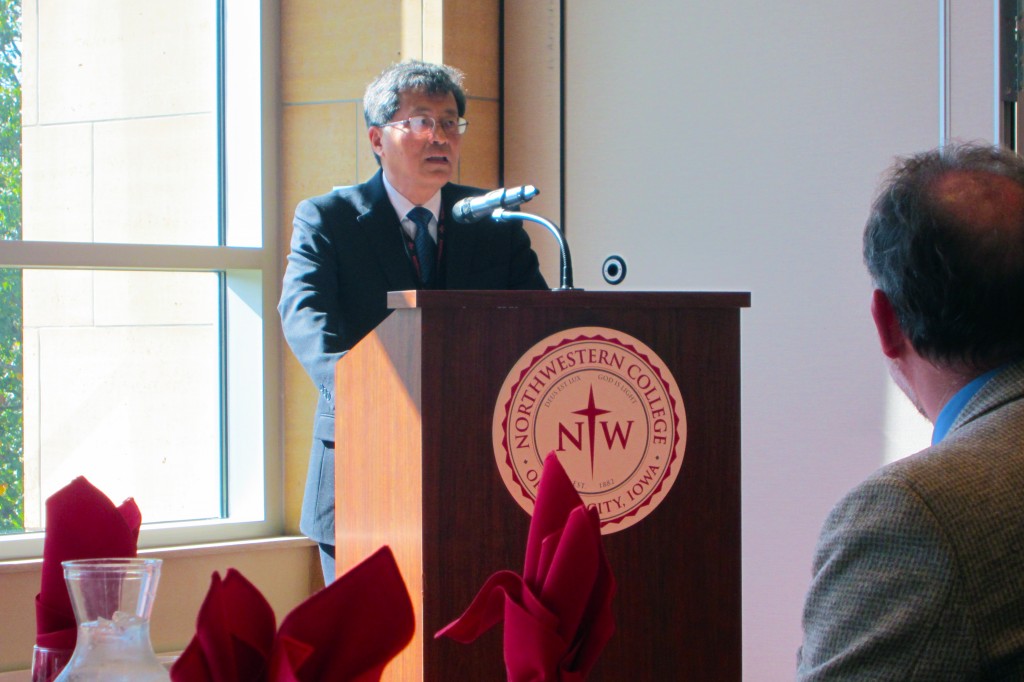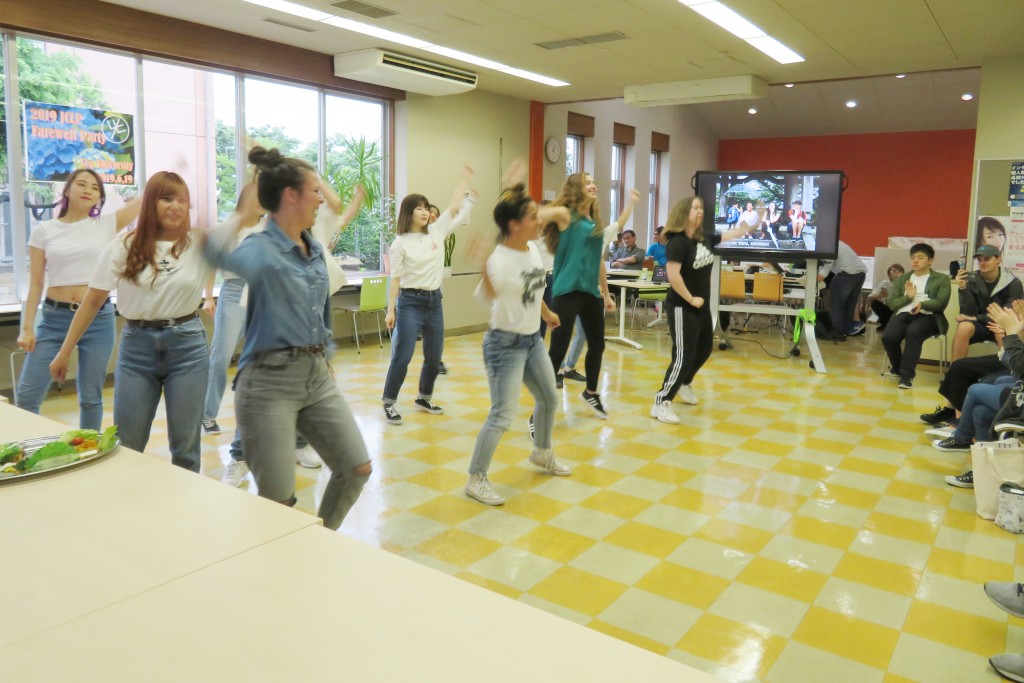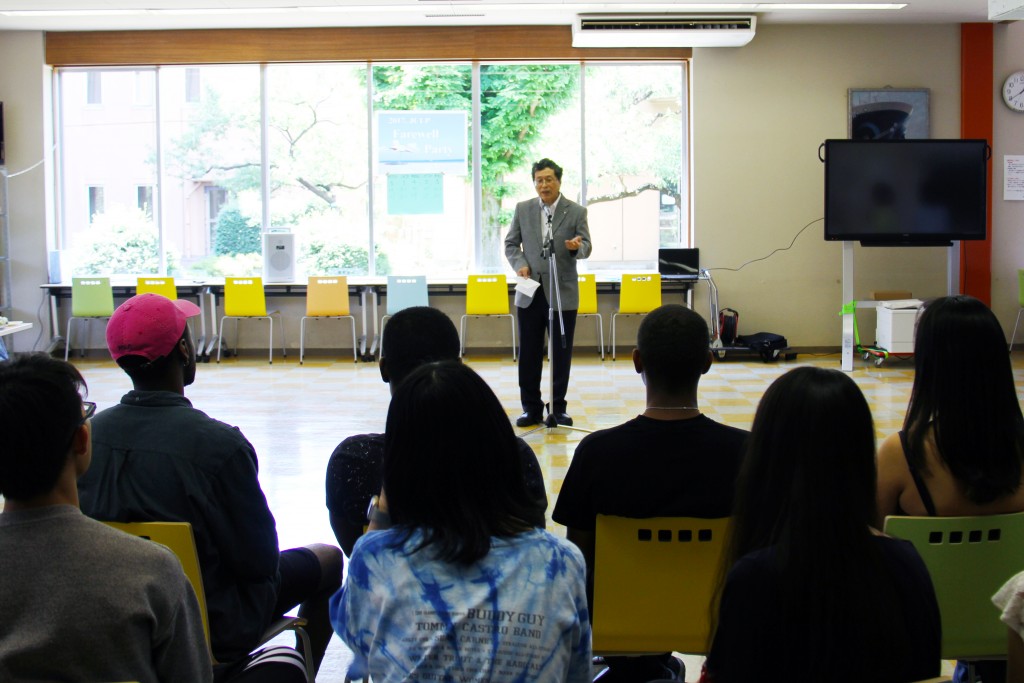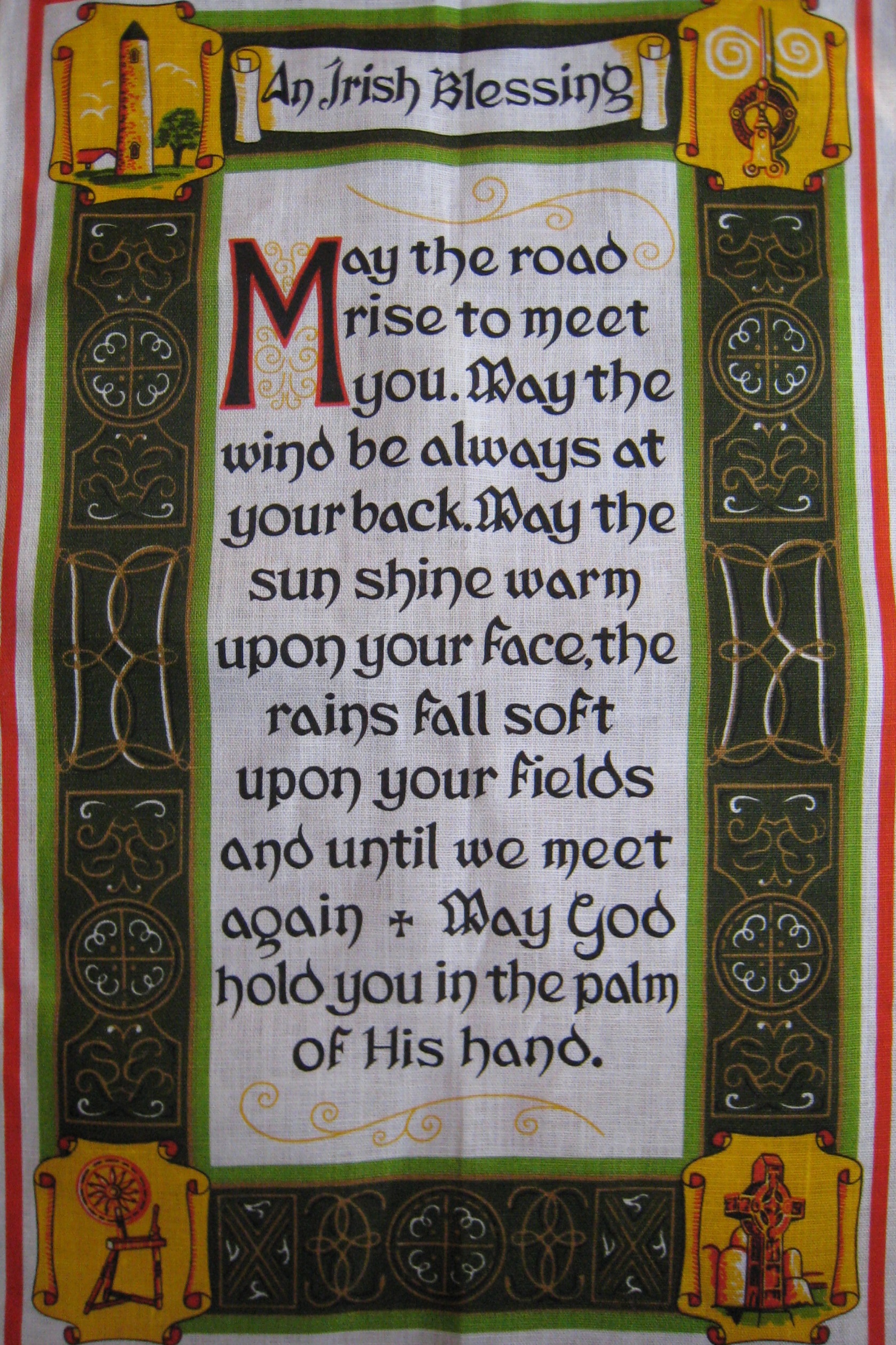学長室だより
T. A.パーム:新潟の医療宣教師(教団ニュース・レター 2015年4月3日)
1875年4月15日に、エディンバラ医療宣教会のセオバルド. A.パームが、東京で日本語を学んだ後に新潟に着任した。パームは1848年にセイロン・コロンボで宣教師の子として生まれた。エディンバラ大学医学部を卒業したバプテストの外科医で、大学卒業と同時に結婚した直後の1874年に夫人と共に来日した。パームは医療宣教師のJ.C.ヘボンと相談した上で、鎖国の直後に開港した五港の中でまだ宣教師がいない「最も困難な土地」を選んだ。しかも新潟に来る3カ月前に出産直後の母子を失った中で新潟にやって来た。
パームは東京から同行した料理人の水谷惣五郎・哲子夫妻と日本語教師の陶山昶、通訳として横浜から派遣された雨森信成によって支援された。病院兼自宅は湊町3丁目に建てられたが、1年後に病院を拡張して本町に移転した。パーム病院では、朝9時から集まった患者たちを前に説教がなされ、その後に朝10時から診察と治療が行われ、夕方には伝道会が開かれていた。最初は雨森が説教し、パームは診察と治療に努めた。夜の伝道会ではパームが説教し、雨森が通訳した。雨森が横浜に去った後にパームがS.R.ブラウンに懇願して 押川方義が横浜から派遣された。押川はパームの協力者となり、パーム病院は医療と宣教の場ばかりではなく、パームが聖書を教え押川が神学を教えて、地元の伝道者を育成する神学塾も兼ねていた。
1877年には、遠方から患者が来るようになり、また中条・村上・新発田・長岡では蘭学医の要請を受けて、パームは出張医療宣教を始めた。船や人力車や徒歩で出かけ、日中には診察と治療を行い夜には伝道会を行った。パームは佐渡島を一度、亀田、水原、葛塚、中条、新発田、沼垂、長岡を定期的に訪問するようになった。そのころ、吉田亀太郎は石油採掘事業のために中条に来ていたが、押川の伝道説教を聴いて、キリスト教に回心して伝道者となり、押川の協力者となった。
パームは1878年に28人の信者によって新潟で教会が組織されたことを報告している。(アメリカン・ボード大阪総会報告書『日本のプロテスタント宣教史』1883年、北日本ミッション「第一次年次報告」1884年度)。パームも押川も超教派主義であり、いずれの教派にも属さない「新潟公会」がこの年に組織された。1879年には中条に講義所が開設され、講義所は次第に増加した。同年にパームは函館の宣教師の娘イサベルと再婚した。
1880年に新潟大火が起こり、パーム病院も焼け落ちてしまった。押川方義は吉田亀太郎と共にこの機に、パームの父が牧会するロッテルダム・スコットランド人教会の支援を受けて「日本のスコットランドに」という使命で東北宣教に転じ、宮城県・福島県・山形県などに諸教会を創設し、東北学院と宮城学院を創立した。1881年にパーム病院が西大畑の南浜通2番町に再建され、その翌年にF.J.ショウが看護婦として着任し、ロンドンの聖トーマス病院でナイティンゲールから学んだ精神と看護方法を日本で最初に伝えた。
1883年にパームは妻の健康のためと休養のために、一時帰国することにした。その間のパーム病院を大和田清晴・虎太郎医師父子に任せ、医療宣教をアメリカン・ボードに委ねたが、パームは終末論の理解の神学問題で宣教会から来日が認められず、村医としてイギリスに留まった。アメリカン・ボードは医療宣教から新潟女学校・北越学館(敬和学園の精神的前身)を支援する教育宣教へと方針を転じ、その宣教方針の転換と相前後して、「新潟公会」は東中通教会と新潟教会に分かれていった。
パームは1875年から1883年の8年半の間に、新潟県の下越地方と中越地方で、延べ4万人の人々に医療を施し、150~160人の重症患者に外科手術を施し、眼科の治療でも評判がよく、104人の信者に洗礼を授け、新潟県のプロテスタントの諸教会の背骨を形成した。敬和学園大学の体育館はパームの医療宣教を記念して「パーム館」と名付けられている。(山田 耕太)
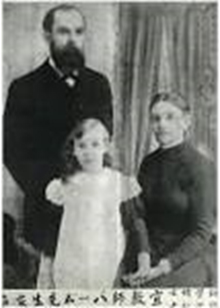
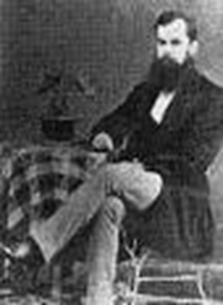
Theobald Adrian Palm: Medical Missionary to Niigata(Kyodan News Letter, 2015 April, 3.)
Theobald A. Palm, of the Edinburgh Medical Missionary Society, came to Niigata on April 15, 1875, after studying the Japanese language in Tokyo. Born in Colombo, Ceylon, he was educated at Edinburgh Medical School and arrived in Japan with his wife soon after his graduation and marriage in 1874. Palm consulted with Dr. J. C. Hepburn, a Presbyterian medical missionary, and decided to go to “the most difficult place” that had no missionaries out of the five ports open to foreign vessels at that time. But three months before his arrival in Niigata, he lost his wife and baby immediately after the baby’s delivery in Tokyo.
Palm was accompanied by a husband-and-wife team, Mizutani Sogoro and Tetsuko, who served as his cooks, and his Japanese language teacher, Suyama Toru, all of whom came from Tokyo. He was also supported by his translator, Amenomori Nobunari, from Yokohama. The combination hospital and home was in Minatomachi in Niigata, but a year later it was expanded and moved to Honcho.
At Palm Hospital, before medical examinations and treatments began at 10 a.m., a morning message was given every morning at 9 a.m. for the patients who had come, and every evening an evangelistic meeting was held as well. Amenomori preached the morning message, after which Palm treated the patients, and then in the evening Palm preached while Amenomori translated. When Amenomori left Niigata a year later, Palm made an appeal to Samuel R. Brown, missionary of the Dutch Reformed Church of America, who then sent Oshikawa Masayoshi from Yokohama as a co-worker, and Palm Hospital began not only to serve as a medical clinic and evangelistic station but also to become a training school for evangelists, where Palm taught Bible and Oshikawa theology.
By 1877, patients began to come from considerable distances. Also, local doctors with only a background in older Western medicine in Nakajo, Murakami, Shibata, and Nagaoka requested Palm to teach them the latest in modern medicine. Thus, he began outreach medical missions to outlying areas. He went out by boat, rickshaw, and even on foot to give medical treatments during the daytime and then held evangelistic meetings in the evening. Palm visited Sado Island once and Kameda, Suibara, Kuzuzuka, Nakajo, Shibata, Nuttari, and Nagaoka regularly. About that time Yoshida Kametaro, who was in Nakajo working on an oil-digging project, listened to Oshikawa’s sermons and was converted to the Christian faith. Later, he became an evangelist himself, working together with Oshikawa.
Palm wrote in his missionary reports that “Niigata Church” was formed with 28 members in 1878. Both Palm and Oshikawa were ecumenical at heart, so the church was not directly aligned with a specific denomination. The following year, a branch meeting was established in Nakajo with other branches following later. In that same year, Palm was remarried to a woman named Isabelle, the daughter of a missionary in Hakodate.
A big fire broke out in Niigata in 1880, and Palm Hospital was burned down. As a result, it was decided that Oshikawa, together with Yoshida and with the support of the Scottish church in Rotterdam, where Palm’s father was located, would evangelize the Tohoku District, with the vision of making it the “Scotland of Japan.” They established churches there and founded two schools, Tohoku Gakuin and Miyagi Gakuin, in Sendai. Palm Hospital was rebuilt in Nishiohata in 1881, and F. J. Shaw arrived in Niigata as a nurse the next year. She had been trained at St. Thomas Hospital and introduced the spirit and techniques of nursing that she had learned from Florence Nightingale.
Palm returned to England in 1883 for furlough and due to his wife’s health, handing the hospital over to Dr. Owada Kiyoharu and his son Kotaro. He also left his medical mission in the hands of the American Board of Commissioners for Foreign Missions. Due to theological differences about how to understand eschatology, however, he was not sent back to Japan and ended up staying in England as a local village doctor. The American Board changed its emphasis from medical missions to educational missions in order to support Niigata Women’s School and Hokuetsu Gakkan, the spiritual predecessors of Keiwa High School and Keiwa College. Due to this change in policy, Niigata Church, which Palm had founded, separated into Higashinakadori Church and Niigata Church.
During his eight-and-a-half years in Niigata, from 1875 to 1883, Palm treated more than 40,000 patients, performed 150 to 160 serious operations, and developed an excellent reputation for his ophthalmological treatments. Palm also baptized 104 people and formed the backbone of the Protestant churches in Niigata Prefecture and of our school. The gymnasium of Keiwa College is named after him, commemorating his medical missionary work.(Yamada Kota, President of Keiwa College)



